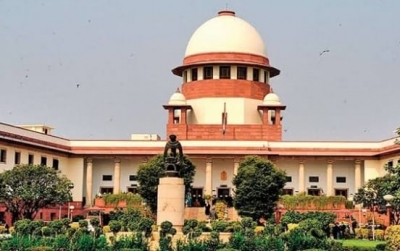New Delhi, Aug 11 : The Supreme Court on Thursday acquitted an accused in a murder case, where the dead body of the victim was not recognisable, saying that an accused cannot be convicted on the ground of suspicion, no matter how strong it is.
A bench comprising justices B.R.Gavai and P.S.Narasimha said: “It is settled law that the suspicion, however strong it may be, cannot take the place of proof beyond reasonable doubt.An accused cannot be convicted on the ground of suspicion, no matter how strong it is.An accused is presumed to be innocent unless proven guilty beyond a reasonable doubt.”
Ram Niwas had moved the top court challenging the March 2009 judgment by Punjab and Haryana High Court, which dismissed his appeal against the trial court judgment passed in 2005, convicting him of murder and sentencing him to life imprisonment.
Advocate Rishi Malhotra, counsel for the petitioner, submitted that from the perusal of the post-mortem report, it is clear that it is not proved beyond reasonable doubt that the dead body on which the post-mortem was conducted was of deceased Dalip Singh.
Malhotra argued that the doctor who carried out the post-mortem admitted that the face of the body was not recognisable, therefore in the absence of the prosecution proving that the body was of deceased Dalip Singh, the conviction was not sustainable.
The top court said the doctor who conducted the post-mortem, in his evidence, admitted that it was difficult to recognise the face of the body and from the post-mortem, it is also not established that the death was homicidal.
Citing a top court’s judgment, the bench said this court held that there has to be a chain of evidence so complete so as not to leave any reasonable ground for a conclusion consistent with the innocence of the accused and must show that in all human probability, the act must have been committed by the accused.
The bench said: “It has been held that the circumstances should be of a conclusive nature and tendency.This court has held that the circumstances should exclude every possible hypothesis except the one to be proved.It has been held that the accused ‘must be’ and not merely ‘may be’ guilty before a court can convict him.”
The bench said the prosecution has utterly failed to establish the chain of events which can be said to exclusively lead to the one and only conclusion, i.e., the guilt of the accused.
Allowing the appeal, the top court quashed and set aside the conviction and sentence of Niwas, and acquitted him of all charges.
ss/arm
#Victims #recognisable #acquits #Delhi #Innocent #Delhi #New Delhi #Haryana #Punjab







